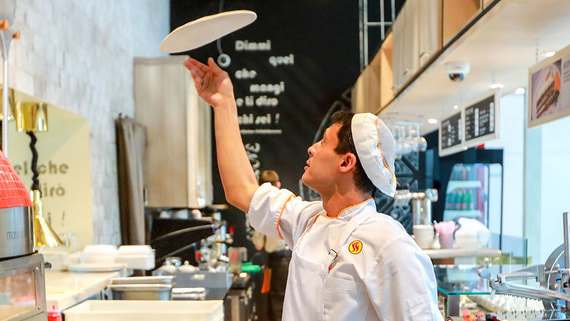Moscow restaurateurs complained about the lack of chefs and bartenders
[ad_1]

The problem is pointed out, in particular, by Stanislav Lisichenko, the founder of the Chinese News restaurants, and Sergey Mironov, the founder of the Meat & Fish chain. According to Mironov, who also heads the Federation of Restaurateurs and Hoteliers, the shortage of personnel is about 20-30%.
Lisichenko believes that the situation with a shortage of personnel is due to a significant drop in the income of foreigners who send their salaries home, as well as a special operation: some of the employees left the Russian Federation, some were mobilized, and some, including “new citizens of the Russian Federation”, left as volunteers. In addition, new restaurants began to open in Moscow in the fall, in which chefs are paid “absolutely any money.” All this will lead to a sharp increase in the expectation of dishes, he warns.
Mikhail Goncharov, the founder of the Teremok restaurant chain, attributes the shortage of staff to the seasonal factor. According to him, the deficit occurs annually from June to the end of October, as employees leave for their families, and by January there are already too many employees.
Oleksiy Vasilchuk, co-owner of the Restart Vasilchuk Brothers holding, also draws attention to low pay and not the highest prestige in the restaurant industry. Anton Krasulin, head of the Vocker project, agrees with him, noting that in general the share of foreigners employed in the Moscow restaurant market is about 60%. In fast food establishments, the figure increases to 70-75%. Now many employees from the CIS countries choose to work not in Russia, but in the United Arab Emirates, Turkey, South Korea, etc., he added.
Up to a third of labor migrants may leave Russia due to the depreciation of the ruble against the dollar and the euro and, as a result, a decrease in income, Vedomosti wrote earlier. Such a forecast was given by the head of the Uzbek diaspora in Moscow Bahrom Ismailov. According to him, due to the growth of the dollar, the earnings of foreign citizens in Russia are declining and are becoming more and more comparable with incomes at home. He suggests that the outflow of labor migrants is primarily likely in the least paid areas – retail, catering, cleaning, catering, courier delivery, agriculture, etc.
The Ministry of Labor, citing data from the All-Russian Research Institute for Labor Protection and Economics, estimated the need for labor migrants in Russia by 2030 at 3.5 million people, i.e. 400,000 people more than in 2022.
[ad_2]
Source link





